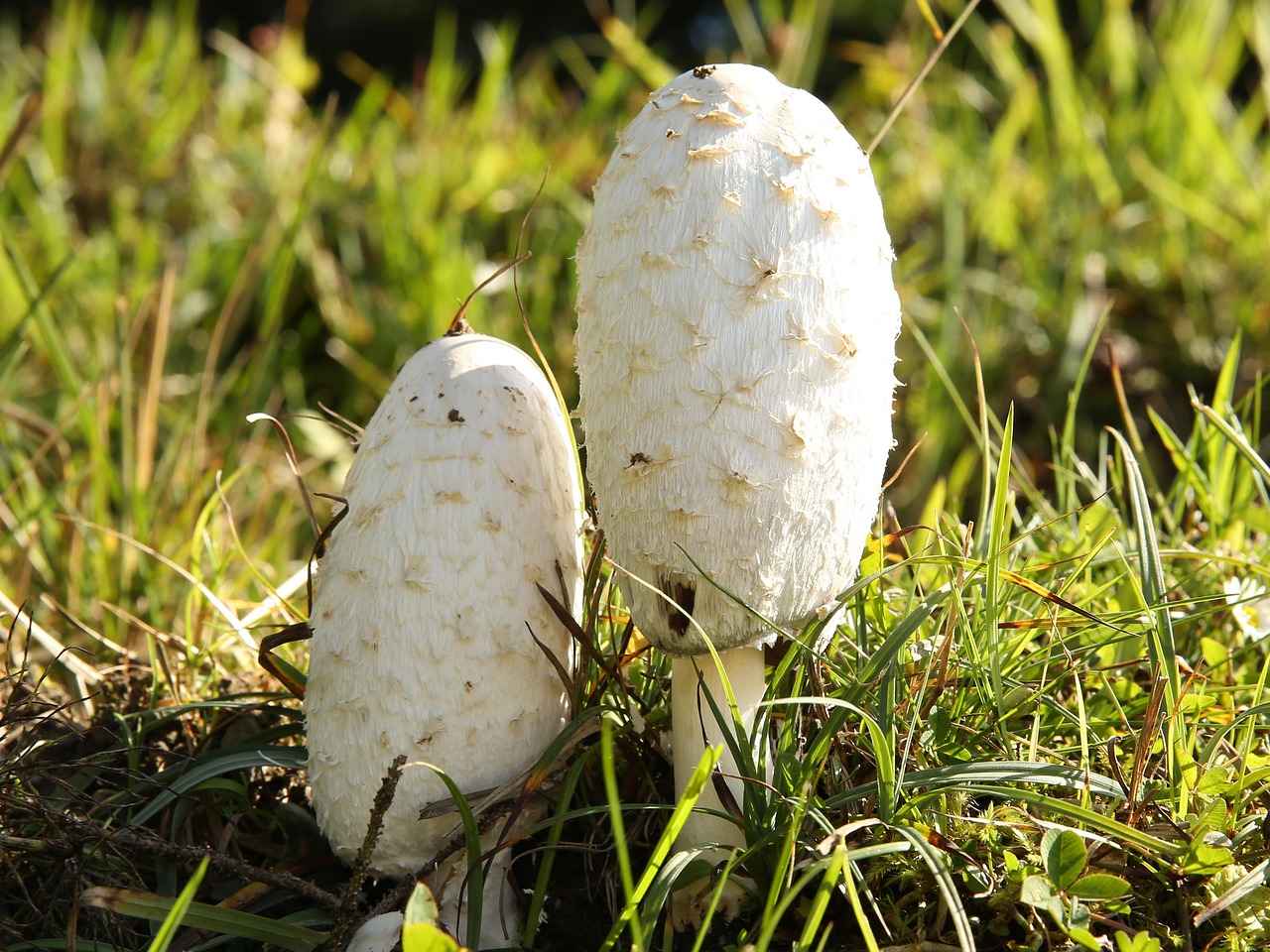This article delves into the myriad health benefits of Chaga mushrooms, particularly their significant role in enhancing immunity. Discover how this remarkable fungus can bolster your overall well-being.
What Are Chaga Mushrooms?
Chaga mushrooms, known scientifically as Inonotus obliquus, are a type of fungus that primarily grows on birch trees. These mushrooms have been utilized in traditional medicine for centuries, especially in regions like Russia and Northern Europe, where they are revered for their health-promoting properties.
Health Benefits of Chaga Mushrooms
Rich in antioxidants, vitamins, and minerals, Chaga mushrooms offer numerous health benefits. Their consumption can lead to:
- Improved immune function
- Reduced inflammation
- Enhanced overall health
Boosting Immune Function
Chaga mushrooms are abundant in beta-glucans, compounds known to stimulate the immune system. These substances enhance immune responses, helping the body fend off infections more effectively.
Antioxidant Properties
The high levels of antioxidants found in Chaga mushrooms combat oxidative stress, which can lead to cellular damage. This protective effect contributes significantly to improved immune health.
Anti-Inflammatory Effects
Chaga mushrooms possess powerful anti-inflammatory properties that can alleviate chronic inflammation, a common contributor to various diseases. By reducing inflammation, they support immune function and promote overall health.
How to Consume Chaga Mushrooms
There are several ways to incorporate Chaga mushrooms into your diet:
- Chaga tea
- Powdered supplements
- Extracts
These methods make it easy to enjoy the health benefits of Chaga in your daily routine.
Potential Side Effects of Chaga Mushrooms
While generally safe, some individuals may experience side effects. It is crucial to consult a healthcare professional before starting any new supplement, especially if you have existing health conditions.
Interactions with Medications
Chaga mushrooms may interact with certain medications, particularly blood thinners. It is essential to monitor these interactions to ensure safe consumption.
Who Should Avoid Chaga Mushrooms?
Individuals with autoimmune diseases or allergies to mushrooms should exercise caution. Understanding who should avoid Chaga is vital for safe consumption.
The Future of Chaga Mushrooms in Medicine
As research progresses, Chaga mushrooms may play a pivotal role in modern medicine. Ongoing studies are exploring their potential applications for enhancing immunity and overall health.

What Are Chaga Mushrooms?
Chaga mushrooms, scientifically referred to as Inonotus obliquus, are a unique type of fungus that primarily thrives on birch trees. Renowned for their remarkable health benefits, these mushrooms have been a staple in traditional medicine, especially in regions like Russia and Northern Europe, for centuries. Their distinctive appearance, resembling a dark, irregular mass, belies their potent healing properties.
Chaga mushrooms are celebrated for their rich nutritional profile, which includes an abundance of antioxidants, vitamins, and minerals. These components are crucial in promoting overall health and well-being. Historically, Chaga has been utilized to bolster the immune system, combat inflammation, and even support digestive health.
One of the key benefits of Chaga mushrooms lies in their ability to enhance immune function. They contain natural compounds known as beta-glucans, which are recognized for their ability to stimulate immune responses. By activating various immune cells, these mushrooms can help the body fend off infections and diseases more effectively.
Moreover, the high concentration of antioxidants in Chaga mushrooms plays a vital role in protecting the body from oxidative stress. This stress can lead to cellular damage and contribute to various health issues. By neutralizing free radicals, Chaga mushrooms aid in maintaining cellular integrity and promoting longevity.
In addition to their antioxidant properties, Chaga mushrooms exhibit anti-inflammatory effects. Chronic inflammation is a known contributor to numerous health conditions, including heart disease and diabetes. By incorporating Chaga into your diet, you may help reduce inflammation and support your immune system in the process.
In conclusion, Chaga mushrooms are a powerful natural remedy with a rich history in traditional medicine. Their ability to enhance immune function, provide antioxidants, and reduce inflammation makes them a valuable addition to any health regimen. As research continues to unveil their potential, Chaga mushrooms may become increasingly recognized for their contributions to modern wellness.

Health Benefits of Chaga Mushrooms
Chaga mushrooms, scientifically known as Inonotus obliquus, are a remarkable fungus that thrives on birch trees and has been celebrated for their health benefits for centuries. Rich in antioxidants, vitamins, and minerals, these mushrooms offer a plethora of advantages that can significantly enhance overall health and well-being.
- Rich in Antioxidants: Chaga mushrooms are packed with antioxidants, which play a crucial role in fighting oxidative stress and preventing cellular damage. This protective effect is vital for maintaining a healthy immune system.
- Boosting Immunity: The presence of beta-glucans in Chaga mushrooms helps stimulate the immune system, enhancing the body’s ability to fend off infections and diseases.
- Reducing Inflammation: Chronic inflammation is linked to various health issues, including autoimmune diseases. Chaga mushrooms possess powerful anti-inflammatory properties that can help mitigate this risk, promoting better health.
- Supporting Digestive Health: The high fiber content in Chaga mushrooms aids digestion and promotes gut health, which is essential for overall wellness.
- Promoting Skin Health: The antioxidant and anti-inflammatory properties of Chaga can also contribute to healthier skin, potentially reducing the signs of aging and promoting a more radiant complexion.
Incorporating Chaga mushrooms into your diet can be done in various ways, such as in teas, powdered supplements, or extracts. With their extensive health benefits, Chaga mushrooms are a valuable addition to anyone’s wellness routine.
Conclusion: The health benefits of Chaga mushrooms are vast and varied, making them a powerful ally in the pursuit of better health. With their rich nutrient profile and potential to enhance immunity, Chaga mushrooms are truly a remarkable natural resource.
Boosting Immune Function
Chaga mushrooms, known scientifically as Inonotus obliquus, have garnered attention for their remarkable ability to enhance the immune system. The primary compounds responsible for this immune-boosting effect are beta-glucans. These complex carbohydrates play a crucial role in stimulating the immune response, making Chaga mushrooms a valuable addition to a health-conscious diet.
When consumed, beta-glucans interact with the immune cells, particularly macrophages and natural killer cells, promoting their activity. This interaction helps in identifying and eliminating pathogens such as bacteria and viruses, thereby reducing the risk of infections. Moreover, beta-glucans also support the production of cytokines, which are signaling proteins that regulate immune responses. This dual action not only enhances the body’s defense mechanisms but also ensures a more robust response to potential threats.
Furthermore, Chaga mushrooms are rich in antioxidants, which play a vital role in maintaining immune health. Antioxidants help combat oxidative stress, a condition that can weaken the immune system and lead to chronic diseases. By neutralizing free radicals, Chaga mushrooms contribute to overall cellular health, allowing the immune system to function optimally.
In addition to their immune-boosting properties, Chaga mushrooms also exhibit anti-inflammatory effects. Chronic inflammation can hinder immune function and is linked to various health issues. By reducing inflammation, Chaga mushrooms help maintain a balanced immune response, further enhancing their protective benefits.
Incorporating Chaga mushrooms into your diet can be done in various ways, such as through teas, powders, or supplements. This versatility makes it easier for individuals to experience the health benefits of this remarkable fungus.
In conclusion, the immune-enhancing properties of Chaga mushrooms, attributed to their beta-glucans, antioxidants, and anti-inflammatory effects, make them a potent ally in promoting overall health and well-being. By integrating Chaga into your lifestyle, you can support your immune system and protect against infections more effectively.
Antioxidant Properties
Chaga mushrooms, scientifically known as Inonotus obliquus, are renowned for their remarkable . These properties play a crucial role in combating oxidative stress, a condition that occurs when there is an imbalance between free radicals and antioxidants in the body. Free radicals can cause significant cellular damage, leading to various health issues, including weakened immune function.
The high levels of antioxidants found in Chaga mushrooms, such as polyphenols and superoxide dismutase, contribute to their ability to neutralize free radicals. By reducing oxidative stress, Chaga mushrooms help protect cells from damage, thereby promoting overall health and well-being. This protective effect is particularly beneficial for the immune system, as it enhances the body’s ability to fend off infections and diseases.
Furthermore, Chaga mushrooms contain beta-glucans, which are known to stimulate the immune response. This combination of antioxidants and immune-boosting compounds makes Chaga a powerful ally in maintaining a robust immune system. Regular consumption of Chaga can lead to improved immune health, making it easier for the body to recover from illness and resist future infections.
Incorporating Chaga mushrooms into your diet can be done in various ways, such as brewing them into a tea, adding them to smoothies, or consuming them in supplement form. Regardless of the method, the benefits of their antioxidant content remain significant.
In summary, the antioxidant properties of Chaga mushrooms are essential for combating oxidative stress and enhancing immune health. By integrating this potent fungus into your daily routine, you can support your body’s defenses and promote overall wellness.
Anti-Inflammatory Effects
Chaga mushrooms, known scientifically as Inonotus obliquus, are gaining recognition for their remarkable anti-inflammatory properties. Chronic inflammation is a prevalent issue that can lead to various health problems, including autoimmune diseases, heart disease, and even cancer. Understanding the role of Chaga mushrooms in mitigating inflammation can be crucial for those seeking natural remedies to enhance their health.
One of the primary components responsible for the anti-inflammatory effects of Chaga mushrooms is their rich content of beta-glucans. These polysaccharides are known to modulate the immune response, helping to balance the body’s inflammatory processes. By doing so, they can assist in reducing the levels of pro-inflammatory cytokines, which are substances secreted by immune cells that promote inflammation.
Research indicates that the consumption of Chaga mushrooms may lead to a significant decrease in markers of inflammation. For instance, studies have shown that individuals who incorporate Chaga into their diets experience lower levels of C-reactive protein (CRP), a common marker used to assess inflammation in the body. This reduction can be particularly beneficial for individuals suffering from chronic inflammatory conditions.
Moreover, the antioxidants present in Chaga mushrooms, such as superoxide dismutase (SOD) and polyphenols, play a vital role in combating oxidative stress, which is closely linked to inflammation. By neutralizing free radicals, these antioxidants help protect cells from damage and further inflammation.
Incorporating Chaga mushrooms into your diet can be achieved through various methods, such as teas, tinctures, or powdered supplements. However, it is essential to consult with a healthcare professional before starting any new supplement regimen, especially for those with existing health conditions.
In conclusion, Chaga mushrooms offer a natural approach to reducing chronic inflammation and supporting immune function. Their unique properties make them a valuable addition to a health-conscious lifestyle, potentially paving the way for improved overall well-being.
How to Consume Chaga Mushrooms
Incorporating Chaga mushrooms into your diet can be both simple and enjoyable. This remarkable fungus offers various consumption methods that cater to different preferences and lifestyles. Below are practical tips for integrating Chaga into your daily routine:
- Chaga Tea: One of the most popular ways to enjoy Chaga is by brewing it into a tea. To prepare, simply:
- Take dried Chaga chunks or powder.
- Simmer in water for 20-30 minutes.
- Strain and enjoy your warm beverage. You can enhance the flavor with honey or lemon.
- Chaga Powder: This versatile form can be added to smoothies, oatmeal, or yogurt. Here’s how to use it:
- Add 1-2 teaspoons of Chaga powder to your favorite smoothie recipe.
- Mix it into your morning oatmeal for a nutritious boost.
- Stir into yogurt or cottage cheese for added health benefits.
- Chaga Supplements: For those who prefer convenience, Chaga supplements are available in capsule or tincture form. Follow the recommended dosage on the label, and consult with a healthcare professional if unsure.
- Chaga Extract: This concentrated form can be used in various recipes, including soups and sauces. Just remember to adjust the liquid content accordingly.
Regardless of the method you choose, it’s essential to start with small amounts to gauge your body’s response. As with any dietary addition, moderation is key. Enjoy the unique flavor and health benefits that Chaga mushrooms have to offer!

Potential Side Effects of Chaga Mushrooms
While Chaga mushrooms are widely recognized for their numerous health benefits, it is essential to acknowledge that some individuals may experience side effects. Understanding these potential risks is crucial for anyone considering adding Chaga to their health regimen. This section outlines the possible adverse effects and emphasizes the importance of consulting a healthcare professional before consumption.
- Digestive Issues: Some users may experience gastrointestinal discomfort, including nausea, diarrhea, or bloating. These symptoms can vary based on individual tolerance levels.
- Allergic Reactions: As with any natural product, there is a risk of allergic reactions. Individuals with mushroom allergies should exercise caution and avoid Chaga.
- Blood Sugar Levels: Chaga mushrooms may lower blood sugar levels. For individuals with diabetes or those taking medications that affect blood sugar, monitoring is essential to prevent hypoglycemia.
- Interactions with Medications: Chaga can interact with certain medications, particularly blood thinners and immunosuppressants. This interaction can lead to increased bleeding risk or reduced effectiveness of medications.
- Autoimmune Considerations: Individuals with autoimmune diseases should consult a healthcare provider before using Chaga, as it may stimulate the immune system and exacerbate symptoms.
Given these potential side effects, it is vital to consult with a healthcare professional before incorporating Chaga mushrooms into your routine. They can provide personalized advice based on your health history and current medications, ensuring safe consumption.
In summary, while Chaga mushrooms offer numerous health benefits, being aware of possible side effects and interactions is crucial. Always prioritize your health and safety by seeking professional guidance.
Interactions with Medications
Chaga mushrooms, known for their numerous health benefits, can pose certain risks when consumed alongside specific medications. One of the most critical interactions to consider is with blood thinners. Understanding these interactions is essential for ensuring safe consumption and maximizing the health benefits of Chaga.
Understanding Blood Thinners
Blood thinners, or anticoagulants, are medications that help prevent blood clots. Common examples include warfarin, clopidogrel, and aspirin. While these medications are vital for managing various health conditions, they can increase the risk of bleeding when combined with certain supplements and natural products, including Chaga mushrooms.
Potential Risks of Combining Chaga and Blood Thinners
- Increased Bleeding Risk: Chaga may enhance the effects of blood thinners, leading to a higher risk of bleeding complications.
- Altered Drug Efficacy: The presence of compounds in Chaga could potentially interfere with the metabolism of anticoagulants, affecting their effectiveness.
Importance of Monitoring Interactions
For individuals taking blood thinners, it is crucial to consult with a healthcare professional before adding Chaga mushrooms to their diet. Regular monitoring and communication with a healthcare provider can help manage any potential risks associated with these interactions.
Conclusion
While Chaga mushrooms offer many health benefits, their interaction with blood thinners is a serious consideration. By understanding these interactions and consulting with healthcare professionals, individuals can safely enjoy the advantages of Chaga while minimizing health risks.
Who Should Avoid Chaga Mushrooms?
While Chaga mushrooms offer numerous health benefits, it is essential to recognize that certain individuals should exercise caution or completely avoid their consumption. Understanding the potential risks is crucial for safe and effective use.
- Individuals with Autoimmune Diseases: Chaga mushrooms have immunomodulating properties, meaning they can stimulate the immune system. For those with autoimmune diseases, this stimulation may lead to exacerbated symptoms or flare-ups. Conditions such as lupus, rheumatoid arthritis, and multiple sclerosis fall under this category, and individuals should consult their healthcare provider before considering Chaga.
- People with Mushroom Allergies: Those who have a known allergy to mushrooms should avoid Chaga mushrooms entirely. Allergic reactions can range from mild symptoms, such as skin rashes, to severe reactions, including anaphylaxis, which can be life-threatening.
- Pregnant and Nursing Women: The effects of Chaga mushrooms during pregnancy and lactation are not well-studied. Therefore, it is advisable for pregnant or nursing women to avoid Chaga to ensure the safety of both mother and child.
- Individuals on Blood Thinners: Chaga mushrooms can have anticoagulant effects, which may interfere with blood-thinning medications. This interaction can increase the risk of bleeding, making it essential for individuals on such medications to consult their doctor before using Chaga.
- Those with Diabetes: Chaga mushrooms may affect blood sugar levels. For individuals with diabetes, monitoring blood sugar is crucial, and any changes in diet, including the addition of Chaga, should be discussed with a healthcare professional.
In summary, while Chaga mushrooms can be beneficial for many, certain populations must approach their use with caution. It is always best to consult with a healthcare provider to ensure safe consumption tailored to individual health needs.

The Future of Chaga Mushrooms in Medicine
As research progresses, Chaga mushrooms (Inonotus obliquus) are emerging as a promising candidate in the field of modern medicine. This remarkable fungus, traditionally used in folk remedies, is now being studied for its potential to enhance immunity and promote overall health. The following sections delve into ongoing studies and potential future applications of Chaga mushrooms.
Current Research on Chaga Mushrooms
Recent studies have highlighted the immunomodulatory effects of Chaga mushrooms. Researchers are investigating how the bioactive compounds, such as beta-glucans and polyphenols, can influence the immune system’s response to pathogens. For instance, preliminary results suggest that these compounds may enhance the activity of macrophages and other immune cells, leading to a stronger defense against infections.
Potential Applications in Cancer Treatment
Another exciting area of research involves the potential of Chaga mushrooms in oncology. Some studies indicate that the antioxidant properties of Chaga may help in reducing tumor growth and enhancing the efficacy of conventional cancer treatments. Ongoing clinical trials aim to determine the effectiveness of Chaga extracts in combination with chemotherapy.
Chaga and Chronic Disease Management
Chronic diseases, such as diabetes and cardiovascular issues, are also being examined in relation to Chaga consumption. The anti-inflammatory and antioxidant properties of this mushroom could play a role in managing these conditions, potentially leading to improved patient outcomes.
Conclusion
As the body of research surrounding Chaga mushrooms continues to grow, their potential role in modern medicine becomes increasingly clear. From enhancing immunity to aiding in chronic disease management, the future applications of Chaga mushrooms could significantly impact health and wellness. Continued investigation and clinical trials will be crucial to fully understand and harness these benefits.







